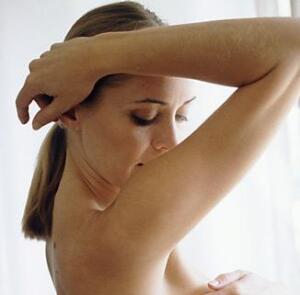Mammography conserva poucas vidas do que as histórias do sobrevivente lhe conduziriam acreditar: estudo
por
Brendon Nafziger, DOTmed News Associate Editor | October 25, 2011

Giuliana Rancic, the 37-year-old host of an E! network news show, recently discovered she had a small breast tumor after a doctor recommended she get a mammogram, despite her young age, when she was undergoing fertility treatments. Afterwards, she urged other women to get screened.
Celebrity endorsements for mammography like this can convince more women to get tested, but they might contribute to inflated expectations for the benefits of mammography, according to two researchers from the Dartmouth Institute of Health Policy.
Their computer model suggests most women who have had their cancers detected by a screening mammogram have not actually had their lives saved by it, they say in a new study that tries to pour cold water on the optimism over the technique generated by stories from cancer survivors.
"Most women with screen-detected breast cancer have not had their life saved by screening," write Dr. H. Gilbert Welch and Brittney Frankel in a study appearing online Monday in the Archives of Internal Medicine. "They are instead either diagnosed early (with no effect on their mortality) or overdiagnosed."
However, the study was dismissed by the American College of Radiology as a "distraction" that doesn't belong in a medical journal.
"No expert has argued in scientific support of mammography screening that, because someone claims their life was saved by screening, this, somehow, supports screening," the ACR wrote on its website. "The serious support for screening comes from the data from randomized, controlled trials (RCT) and large observational studies that clearly show that deaths from breast cancer are reduced by early detection."
Life-saving predictions
Using national Surveillance Epidemiology and End Results data and estimates of cancers' deadliness and frequency for a typical 50-year-old woman, the Dartmouth researchers predict around 13 percent of women with screening-detected tumors will have had their lives saved by the screening, although the number varies from 3 to 25 percent, depending on the age of the woman when screened (the older the woman, the more life-saving the technique appears to be) and assumptions about mammography's mortality benefits.
In the study, the researchers said mortality benefits were estimated to vary between 5 and 25 percent, based on previous experiments sampled by the researchers. However, they said the higher mortality benefits come from studies around 25 years old, and that with more recent improvements in non-screening methods for detecting cancer and greater awareness of women to visit the doctor when they find a lump, the benefits of screening have likely shrunk.
|
|
|
You Must Be Logged In To Post A Comment
|

Steve Arey
Mammography screening
October 27, 2011 10:14
Of the 40,000 11 percent or 4400 lived in California. Shouldn't there be studies going on there? Finding out why these are happening at such a high rate in California compared to the rest of the U.S. seems like a more practical place to spend your healthcare dollars.
to rate and post a comment